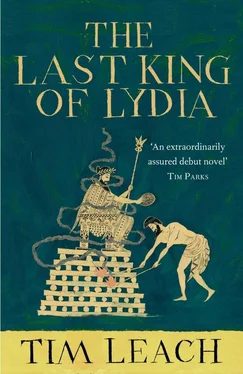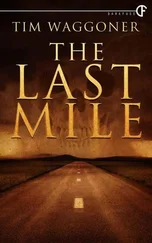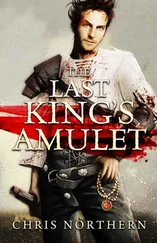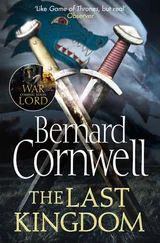Tim Leach - The Last King of Lydia
Здесь есть возможность читать онлайн «Tim Leach - The Last King of Lydia» весь текст электронной книги совершенно бесплатно (целиком полную версию без сокращений). В некоторых случаях можно слушать аудио, скачать через торрент в формате fb2 и присутствует краткое содержание. Год выпуска: 2013, ISBN: 2013, Издательство: Atlantic Books Ltd, Жанр: Исторические приключения, на английском языке. Описание произведения, (предисловие) а так же отзывы посетителей доступны на портале библиотеки ЛибКат.
- Название:The Last King of Lydia
- Автор:
- Издательство:Atlantic Books Ltd
- Жанр:
- Год:2013
- ISBN:9780857899200
- Рейтинг книги:5 / 5. Голосов: 1
-
Избранное:Добавить в избранное
- Отзывы:
-
Ваша оценка:
- 100
- 1
- 2
- 3
- 4
- 5
The Last King of Lydia: краткое содержание, описание и аннотация
Предлагаем к чтению аннотацию, описание, краткое содержание или предисловие (зависит от того, что написал сам автор книги «The Last King of Lydia»). Если вы не нашли необходимую информацию о книге — напишите в комментариях, мы постараемся отыскать её.
The Last King of Lydia — читать онлайн бесплатно полную книгу (весь текст) целиком
Ниже представлен текст книги, разбитый по страницам. Система сохранения места последней прочитанной страницы, позволяет с удобством читать онлайн бесплатно книгу «The Last King of Lydia», без необходимости каждый раз заново искать на чём Вы остановились. Поставьте закладку, и сможете в любой момент перейти на страницу, на которой закончили чтение.
Интервал:
Закладка:
Beside him, Gyges shifted a little, as though in discomfort. ‘Perhaps this talk of politics bores you. I am sorry.’ He hesitated. ‘Maia wishes she could see you,’ he said. ‘They still won’t permit it. They say they won’t allow a woman amongst the mad, some foolish custom of theirs. She misses you.’ He paused. Gyges was staring ahead into thin air, giving no sign he had heard anything that his father had said.
Croesus shook his head. ‘You won’t talk to me. I still sometimes wonder if you talk to the Gods, you know,’ he said. ‘If you are a prophet.’
‘I am no prophet.’
Croesus started, feeling the shock of the words pass through him. Gyges had spoken ever since the fall of Sardis, but his words came rarely, as if he had only a limited number to use, like an archer in a siege who must make his dwindling ammunition count. ‘What are you then?’ he said.
Gyges shrugged, and looked away.
‘Are you happy?’
Gyges hissed in irritation.
‘You think it is a foolish question,’ Croesus said. Then he paused. ‘I can be content at least, serving this king,’ he said. ‘If things do not change.’
‘They will change,’ Gyges said, almost absently. Then he turned away, and looked at the grass, like a king dismissing an out of favour courtier. The conversation was over.
Croesus stood and brushed the dried grass from his knees. He hesitated before going. In two years, he had teased out perhaps twenty sentences from Gyges. Each time he had seen his son, the encounter had been as inconsequential as this one, and yet he was still possessed by the same sensation that had taken hold of him at the fall of Sardis, when Gyges had spoken for the very first time, the sense that there was some mystery that his son understood that he did not.
Perhaps, he thought to himself, it would be revealed in action, in touch, not in words. He hesitantly reached a hand out towards his son.
Gyges flinched away. He had once permitted his father to touch him, when Sardis fell and death appeared certain for both of them. But it seemed it had been a single gift, and Croesus made a promise to himself there, before he left Gyges to the company of madmen, that he would not try to embrace his son again.
4
His son had denied he possessed any gift of prophecy, yet the change he spoke of followed his words.
News soon came of the collapse of the Lydian insurrection. Of armies that had disappeared overnight, their thousands of men melting back to towns and farms and burying their weapons in the forest; of rebel counsels that had preached independence and patriotism, now dissolved into desperate denunciations and pleas of loyalty to the Persian king. The usurper Pactyes had fled with his gold to some foreign haven, to live out his life in dreams of what might have been. The rebellion was over.
With this news, the Persian army divided, like some wandering tribe grown large and cumbersome, in which the young break away, restless and dissatisfied, to build a new world of their own. Half were to go to the western coast, to conquer the scattered cities of the Ionians. The others, to the east, to see what other lands Cyrus might add to his empire.
When the break was announced, Croesus had thought that he would go with the king. And yet when the names were read, of who in the court would go east and who would go west, he was told that he would now serve Harpagus.
He looked around at the men of the Persian court, seeking some explanation, but no one looked back at him. What interest would they have in the comings and goings of a slave? Then Harpagus caught his eye. The general looked at the slave, and, for the first time, Croesus saw him smile.
‘He requested me,’ Croesus said. ‘That’s what I was told. What can that mean?’
Isocrates did not reply.
‘I would understand if it was Cyrus’s command. But why would Harpagus ask for me?’
‘You ruled over the Ionians. Perhaps he thinks you can be of use to him.’
‘No. He thinks I am a fool. I cannot make sense of it.’ Croesus hesitated. Even in the darkness of their tent, Isocrates would not look at him. ‘You know something, don’t you?’
‘Yes.’ But it took him a long time to speak again. ‘They say he murdered Astyages.’
‘What do you mean?’ he said.
Isocrates shrugged and looked away ‘That is what I have heard. It is what the other slaves say, anyway.’
‘Gossip. Idle talk.’
‘Slaves know more about what really happens than anyone, Croesus.’
‘Why would he kill him? Tell me that.’
‘Astyages became the king’s closest advisor, after being taken as a slave. Closer even than Harpagus, or so they say. Then Astyages killed himself, just as he was beginning to win the king’s favour. It makes no sense.’
Croesus thought on this, seeking some way out of the trap. He found none. ‘What should I do?’
‘I don’t know. How much time do you have?’
‘We leave tomorrow.’
Isocrates said nothing.
‘How did he do it?’ Croesus said.
‘Poison. That’s what they think, at least.’
Croesus nodded slowly. ‘That’s good.’
‘That’s good?’
‘If poison is the method he favours, he will have a hard time getting it to me.’
Isocrates shook his head. ‘I wish you had made an enemy of any other man. He is cleverer than you, Croesus.’
‘Yes, I know. But he has something to lose. Unlike me. That’s something.’ Croesus hesitated. ‘I don’t suppose I shall see you again, after tomorrow.’
Isocrates said nothing. Croesus rose, turned, and walked out into the night.
He passed through the tents of the army, watched the flickering of firelight on the bored young faces at the sentry fires, kept to the shadows and listened to the talk of soldiers fighting sleep, passing the time until dawn.
He could not believe that he had grown attached to this army, that he almost considered it a home. An army at peace could be mistaken for a gathering of nomads, wanting nothing but to travel and be free. An army at war he knew to be something else entirely.
He thought of escape. Of slipping past the fires and out into the wilderness, and finding a new life in a place where they had never heard of Croesus and the mistakes that he had made. But even if he could have made his way past the soldiers on watch and out of the camp, he knew nothing of how to live off the land, and he had no allies to run to. No man would take in a runaway slave, unless they wanted a slave for themselves, and he had no value as a worker in a house or in the fields. He knew only kingship, and war.
He thought of Harpagus, his little smile of triumph. Then he tried to think of nothing at all.
When Croesus woke in the morning, the patch of ground beside him was empty and cold. Isocrates had gone. Croesus could not blame him. Amongst the slaves, it was understood that one’s own life was always more valuable than that of a friend. There was no shame in leaving a doomed man to die.
But when he walked towards the southern edge of the camp, where half the army was preparing to leave and ride west, he discovered that he was wrong. Isocrates and Maia were both waiting for him on the main path that ran through the encampment.
‘You shouldn’t be here,’ Croesus said. ‘There will be trouble for you.’
Isocrates waved off his concerns. He took Croesus’s hand, and Croesus felt the familiar metallic shapes settling into his palm. He looked down on a scattering of gold and silver coins. A pittance for a king. A small fortune for a slave.
‘Use them carefully. I am sorry I couldn’t get more,’ Isocrates said. ‘There are few who will lend to a slave.’
‘Thank you, Isocrates.’ He bowed his head, and tried to smile. ‘I will have lived a few years longer than I should have, anyway. I suppose that’s something.’
Читать дальшеИнтервал:
Закладка:
Похожие книги на «The Last King of Lydia»
Представляем Вашему вниманию похожие книги на «The Last King of Lydia» списком для выбора. Мы отобрали схожую по названию и смыслу литературу в надежде предоставить читателям больше вариантов отыскать новые, интересные, ещё непрочитанные произведения.
Обсуждение, отзывы о книге «The Last King of Lydia» и просто собственные мнения читателей. Оставьте ваши комментарии, напишите, что Вы думаете о произведении, его смысле или главных героях. Укажите что конкретно понравилось, а что нет, и почему Вы так считаете.












